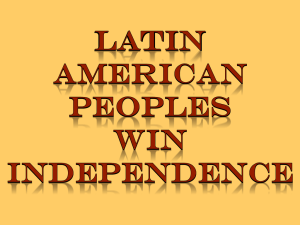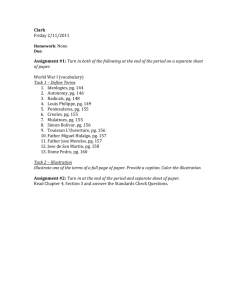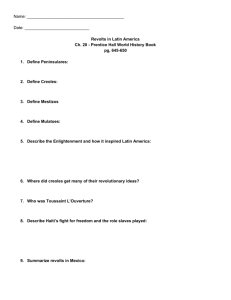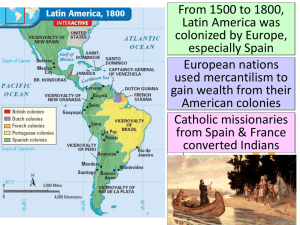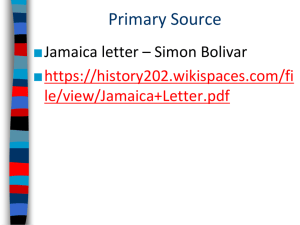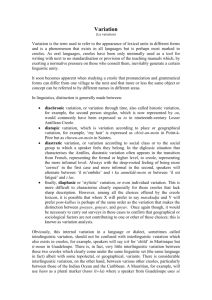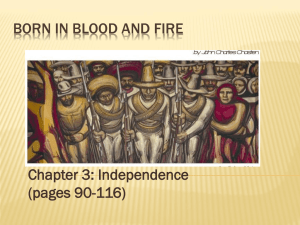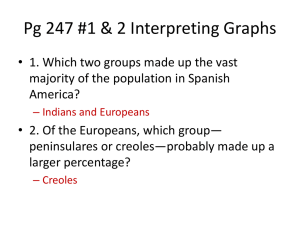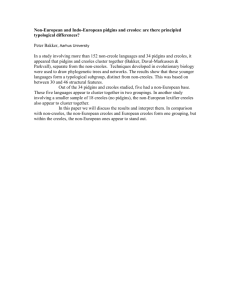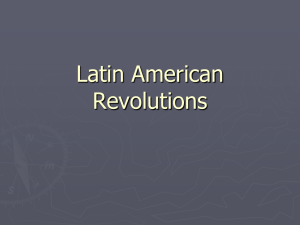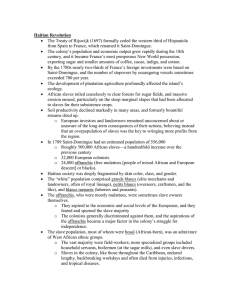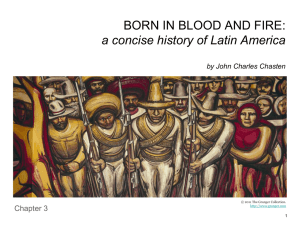Revolution - bugilsocialstudies
advertisement
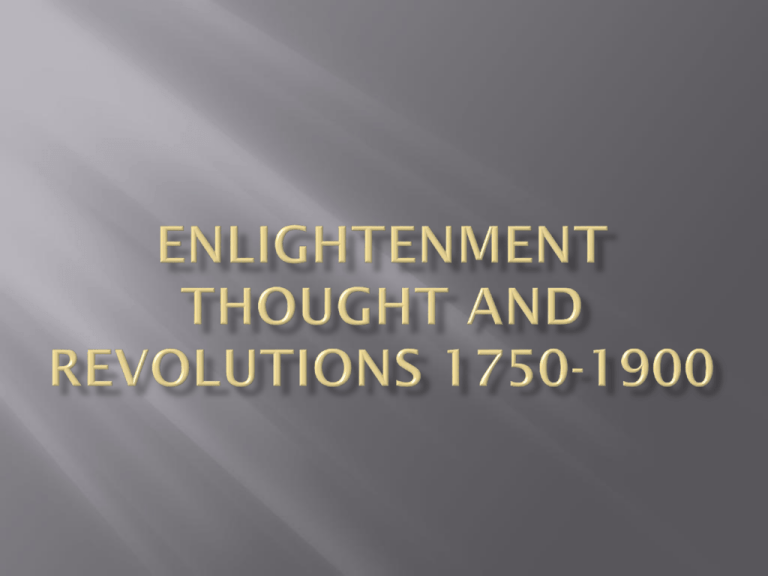
• Laws of nature [NATURAL LAWS] govern science and human society. • Rights to life, liberty and property • Fair societies based on reason • Theory of “Divine Right” monarchy challenged • • • • Voltaire Rousseau Montesquieu Locke A sudden, radical or complete change A fundamental change in political organization; especially the overthrow or renunciation of one government or ruler and the substitution of another by the governed. An activity or movement designed to effect fundamental changes in the socioeconomic situation; synonym, see Rebellion The Boston Massacre Rule by the British Crown The Boston Tea Party Loyalist Strongholds Exports & Imports: 1768-1783 American Exports, To & From Britain: 1783-1789 Independence! Resistance • Day-to-Day Activities • Runaways/Maroons • Revolt/Rebellion Read and analyze the Declaration of Independence Preamble. Where do you see connections to Enlightenment ideas? Second Estate Third Estate Liberal – wanted to limit state power; sought economic reforms Radical – wanted wider voting rights; advocated for lower classes National Assembly Passes New Constitution that: Limited the power of the monarchy Restructured French politics and society •National Convention and Robespierre - 1792 •Radical “Mountain” faction •Committee of Public Safety •Reign of Terror Robespierre executed More conservative constitution passed New executive authority: The Directory Emperor Military Talent French Empire Dark blue: French states Light blue: satellite states Green: allies attacked privileged institutions more promoted the idea of nationalism, or intense loyalty to the state extended Manhood suffrage Read and analyze the Declaration of the Rights of Man and Citizen. Where do you see connections to Enlightenment themes? What similar themes do you see in the Declaration of Independence? Whites (5%) 30,000 2% Grande (antiFrench Revolution) 3% Petite Grande – white artisans & business owners) Creoles (5%) 28,000 Black slaves (90%) 500,000 Whites: French Dominance (Read Rights are not for Everyone) Creoles: Their lack of Political Rights Black Slaves: Enslavement (Read The French Code Noir, JeanMarie d’Augy’s statement, and Motto of the Slave Revolt) FRANCE Independence from France Creole Leadership Freedom for Black Slaves Isolation (Egerton, Geggus) Instability Creoles Spanish Dominance Creoles: discontent at being left out of government jobs and trade concessions Simon Bolivar & Jose de San Martin Napoleonic Invasion of Spain and Portugal Napoleon is a diversion and a model Independence Read Bolivar's Jamaica Letter Poverty: wars disrupted trade Caudillo control Feuds among leaders The social hierarchy continued from the past Conservatives favored the old social order Liberals wanted land reform Dependence on foreign nations for capital and for economic investments The Caribbean: An “American Lake” US dominated affairs in the Americas 1823 – Monroe Doctrine US takes Texas and Mexican Cession US gains independence for Cuba Roosevelt Corollary – US will police the Americas US sent troops to Cuba, Haiti, Mexico, Honduras, Nicaragua US built Panama Canal – “Yankee imperialism” Economic Imperialism
